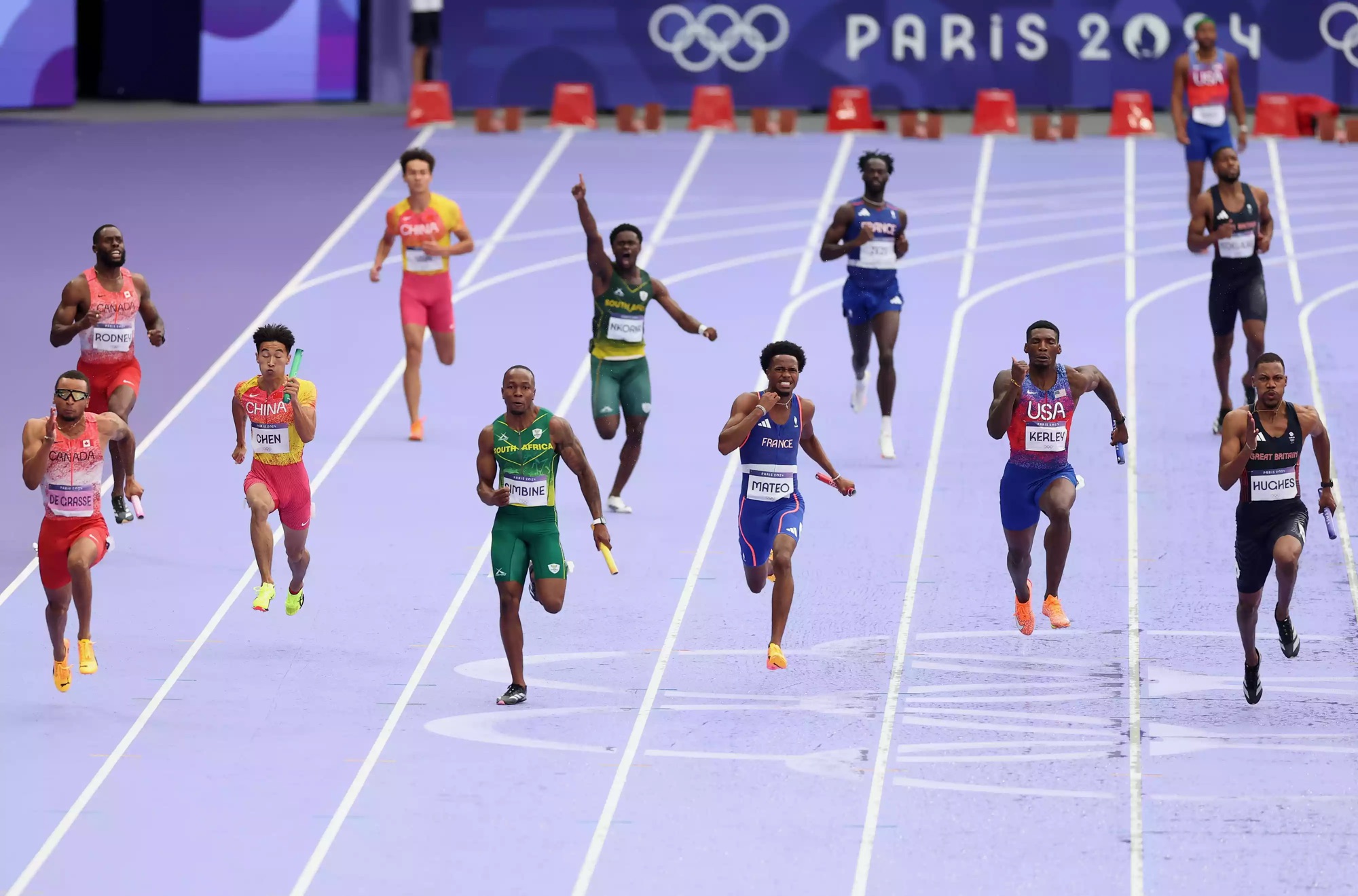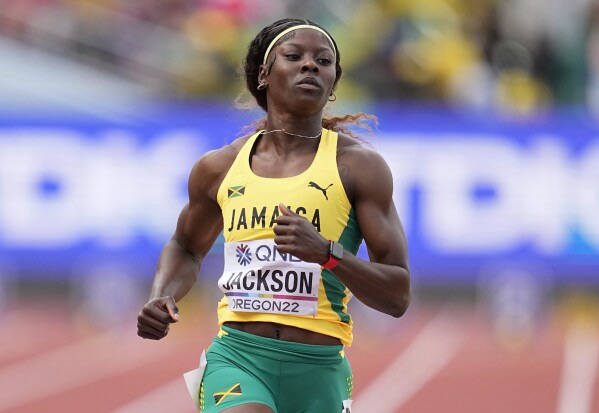The U.S. men’s 4×100-meter relay team entered the 2024 Paris Olympics with high hopes of ending a 20-year medal drought in the event. However, their dreams were shattered on August 9 when they were disqualified from the finals due to a botched baton exchange. The disqualification marked a devastating conclusion to a campaign that had been fraught with challenges, including the last-minute withdrawal of star sprinter Noah Lyles.
Lyles, who was expected to be a key player in the relay team, was forced to pull out after contracting COVID-19. His absence left a significant void in the team, which was comprised of Christian Coleman, Kenny Bednarek, Fred Kerley, and Kyree King. Despite Lyles’ departure, the remaining team members were determined to put on a strong performance and bring home a medal for the United States.
However, the team’s efforts unraveled in the final moments of the race. Amid steady rain, the baton handoff between Christian Coleman and Kenny Bednarek went awry, with the exchange occurring outside the designated handoff zone. This critical error resulted in an automatic disqualification, dashing their hopes of a podium finish and extending the U.S. men’s 4×100-meter relay medal drought.
Reflecting on the race, Coleman expressed his disappointment, stating, “[The handoff] just didn’t happen. We practiced a lot…and in the moment, it just… It’s a part of the sport.” Bednarek echoed his sentiments, acknowledging the team’s collective disappointment but also emphasizing their resolve to move forward. “We wanted to bring it home…but we’re all human beings, and this is just another one of those times where we just gotta keep our head down and keep pushing,” Bednarek said.
Despite the setback, the team remains optimistic about their future prospects. With the 2028 Olympics set to take place in Los Angeles, Bednarek expressed confidence that the team would come back stronger on home soil. “I think we’ll have a little more confidence and be able to bring it on home,” he added.
The race was ultimately won by Canada, with a time of 37.50 seconds, followed by South Africa in second place with 37.57 seconds, and Great Britain taking the bronze.
The disqualification was a bitter pill to swallow, especially given the team’s long-standing quest to reclaim their dominance in the 4×100-meter relay. The last time the U.S. men’s team won a medal in the event was in 2004, when they took home the silver in Athens. The Paris Olympics had presented a golden opportunity to break that streak, but it was not to be.
Noah Lyles, who was unable to compete in the relay due to his illness, had earlier shown his exceptional prowess by winning bronze in the men’s 200-meter final, just days after claiming gold in the men’s 100-meter. His absence in the relay was a significant loss for the team, and the disqualification underscored the challenges the U.S. men’s relay squad has faced in their pursuit of Olympic glory.
As the team looks ahead, they remain focused on redemption. The lessons learned in Paris will undoubtedly fuel their drive to succeed in Los Angeles, where they hope to finally break their medal drought and reestablish the U.S. as a powerhouse in the 4×100-meter relay.






